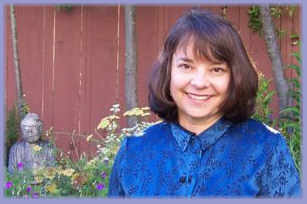Greetings Sadhakas,
This week in class
we are considering the original duality of “myself” and “the rest of the world”.
To have courage for whatever comes in life - everything lies in
that.
-Saint Teresa of Avila
For the majority of
us, uncertainty is worse than disaster, because disaster comes to us only
rarely; worry depletes us often. We never know whether we are going to get a
brick or a bouquet. If we knew for certain a brick was on its way, there would
be no anxiety. We would just say, "Throw it and be done with it."
We can learn how to
handle both bricks and bouquets, praise and censure, success and defeat. When
we can say, "Whatever comes, we will not be afraid because the divine Self
is within us," then this resoluteness and faith will enable us to work
free from tension, agitation, and fear of defeat. The person who works in this
way is at peace, because he or she is not anxious about results.
Words to Live By:
Inspiration for Every Day – Eknath Easwaran
The homework is
to consider our habit of dividing the world into comparative pieces and our
original division of life into the duality of “myself” and “the rest of the
world.” Relate this pattern of self-prescribed dualities to Easwaran’s
commentary especially in terms of certainty vs uncertainty. Would you be at peace
if you were able to experientially transcend this duality? How do the practices
of Yoga help move you in this general direction?
Reference: The Secret
of the Yamas, A Spiritual Guide to Yoga - John McAfee.
Blessings,
paul cheek
Rushing Water Yoga
417 NE Birch St., Camas, WA 98607
360.834.5994
www.rushingwateryoga.com
Serving Yoga to Camas, Washougal, and Vancouver Washington since 2003





